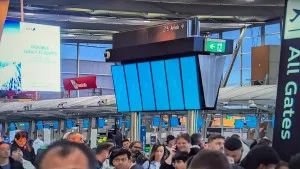TikTok Users File Lawsuit to Challenge Law Banning TikTok Use in Montana
Time to Read: 2 minute
TikTok users in Montana hope that the law that prohibits the use of the app will be removed because they believe it is not constitutional
In Montana, a group of TikTok users have decided to file a lawsuit demanding that the state's recent ban on the popular video app be stopped. This measure was approved by Governor Greg Gianforte, generating great controversy between the inhabitants of Montana and the users of the platform.
In the text of the complaint, the plaintiffs argue that “Montana does not have the authority to enact laws that further what it believes should be the foreign policy of the United States or its national security interests, nor can Montana prohibit a complete forum of communication based on their perception that any speech shared through that forum, while protected by the First Amendment, is dangerous."
Violation of the Constitution
The plaintiffs contend that Montana's SB 419, known as the TikTok Prohibition Act, is in direct violation of the US Constitution and therefore illegal. They argue that the First Amendment guarantees free speech and prohibits the government from limiting access to a communication platform based solely on the perception that certain speech shared through it is dangerous.
In addition, the plaintiffs allege that Montana does not have the authority to advance the foreign policy of the United States or its national security interests through the enactment of state laws. They argue that these decisions fall within the purview of the federal government and cannot be imposed by an individual state .
The lawsuit seeks to stop the implementation of TikTok's ban in Montana and requests that SB 419 be declared unconstitutional. TikTok users argue that the app has given them a platform to express themselves, connect with others, and share creative content , and that the ban is an unjustified restriction of your fundamental rights.
The controversy surrounding the TikTok ban in Montana is still ongoing, and it will be up to the court system to determine whether SB 419 actually violates the US Constitution and whether the plaintiffs have the right to have its implementation halted .



